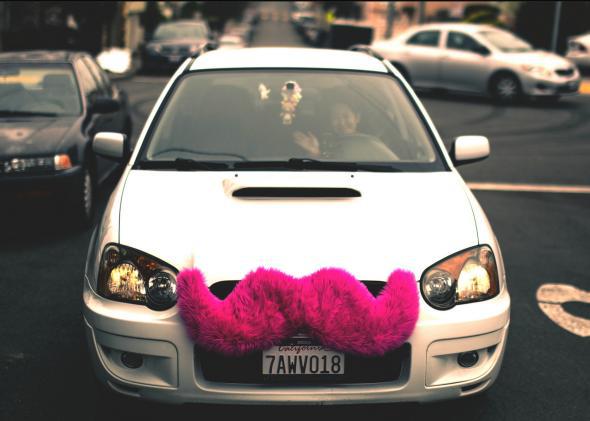The ever-hot “sharing economy” got a little hotter this week with on-demand ride companies Lyft and Uber announcing new services, “Lyft Line” and “UberPool,” which aim to fill a gap between the hired car/taxi industry and public transit. They do that by pairing you with another Lyft/Uber user who happens to be going in the same direction. Think of it as a mini-mini-minibus: You order a ride from Point A to Point B, and Lyft/Uber scours its database for one or two other people heading generally toward Point B from locations convenient to your route. In exchange for sharing your ride with strangers, sitting through extra stops, and risking a more time-consuming commute, you get a steep discount on the fare.
For both Lyft and Uber, the ultimate goal is to build a transportation system that could eventually take the place of car ownership. “We really wanted to create something you can use at least twice a day, and to do that, we need to think about how to become more efficient so we can bring prices lower,” says Lyft co-founder John Zimmer. The U.S. taxi and limo market is an $11 billion industry, but the country’s overall transportation market tops $1 trillion annually, with the vast majority of that spent on car ownership and maintenance. This second market is what both companies are hoping to tap. “We’re playing in the entire $1.1 trillion opportunity,” Zimmer says.
Lyft Line is launching throughout San Francisco and UberPool is rolling out in private beta. Otherwise, though, the new services are hauntingly similar, which chips away at the characteristic differences between the two companies. Uber is slick, in-your-face, and unapologetically capitalist. Lyft is upbeat, community-oriented, and unabashedly goofy. If the two were characters from NBC sitcoms, Uber would be Jack Donaghy and Lyft would be Leslie Knope—and Lyft has carefully cultivated that of-the-people, by-the-people, for-the-people image. If Uber pushes onto that turf as well, Lyft’s main differentiator might disappear fast.
